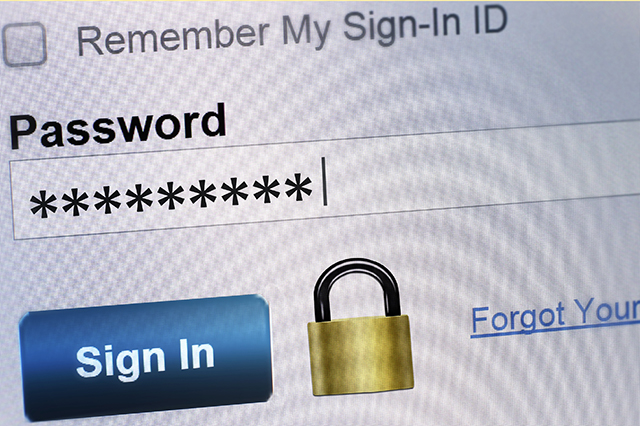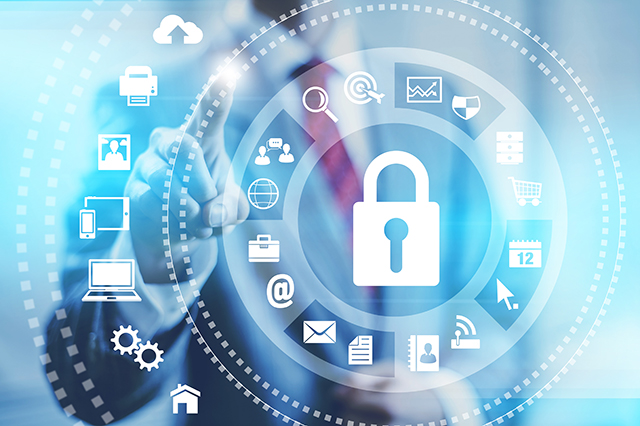Take a moment to think about the numerous ways that you use the internet. Chances are that some of the items on that list include banking, shopping, conducting business, listening to music, keeping up with current events and communicating with friends and family.
While growing connectivity serves to make many aspects of our daily lives easier, it also exposes us to the risk of theft, fraud and abuse. It’s more important than ever to learn how to stay safe online.
Identity theft is one of the fastest growing crimes in America, according to the Federal Trade Commission, with almost 10 million incidents occurring each year. And while there is no surefire way to prevent it from happening, there are certain precautions we can all take to lower our risk of falling victim to identity thieves.
It’s vital that Americans stay aware about the latest cyber threats and on top of ways to stay safe online. AAA offers the following tips:
1. Use secure passwords.
When creating a password, use a combination of letters, numbers and symbols. Avoid using words in the dictionary or personal information, such as your Social Security number or birthday. Be sure to never share your passwords with anyone. And don’t reuse them – while it may seem like a good idea to recycle passwords, using the same or similar ones for different accounts makes it easier for hackers to gain access.
2. Enroll in an identity theft monitoring service.
Identity theft monitoring services can alert you to aberrant activity in your various accounts. AAA members can enroll in ProtectMyID for free.
3. Update your software.
Be sure to keep your operating system, web browser, anti-virus, anti-spyware and other essential software up to date. Most major software companies provide free updates and patches for their users to download.
4. Know who you’re dealing with.
If someone claiming to be a representative of a company asks you to provide personal information via email, contact the company directly to verify.
5. Pay attention to URLs.
This is one of the easiest ways to stay safe online. Always double check that the URL of the website you are visiting is correct. Malicious websites sometimes use a variation in spelling or a different domain to deceive computer users.
6. Don’t open unsolicited email attachments.
Attachments can sometimes contain hidden viruses or bits of code that can access your personal information and send it to a specific individual without your knowledge. Turn off the setting to automatically download email attachments. It’s also smart to save and scan attachments with anti-virus software before opening them.
7. Be careful what you post.
Being conscious of how to stay safe online is especially important on social sites. Limit what personal information you post on social media sites and forums and be sure to never post your address, schedule or any other information that could leave you vulnerable.
8. Configure your security settings.
Use your social media site’s privacy settings to change who can view your information. Many websites allow you to share information only with certain people instead of the general public.

9. Only use secure networks when web browsing.
When accessing the Internet on a mobile device, be sure you are using a network that you know and trust. Using an unsecured network allows anyone else on that network to pull your information at will.
10. Don’t trust unknown links.
Do not click on strange links or answer suspicious questions sent through email or text message if the sender is unfamiliar.
11. Only download trusted apps.
When downloading applications for your computer or mobile device, be sure to get them from reputable marketplaces, such as the Apple App Store or Google Play.
12. Keep track of who is storing your information.
Create a list or spreadsheet to keep track of websites with which you have created accounts, particularly ones that are storing your credit card information. Delete account profiles from websites that you no longer use. The less places your information is being stored, the easier it is to identify the source of a breach.
13. Don’t share your Wi-Fi.
While sharing your Wi-Fi connection with neighbors may seem generous, it can slow down your Internet speed and allow other users to see everything on your computer.
14. Use shared computers with caution.
Never input confidential information into a public or shared computer as any user after you will have access to it. Also, be sure to check for any flash drives or disks that may have been left in by a previous user. These devices could be used to monitor your activity and store any information you do decide to input.
15. Secure your mobile devices.
Anti-virus and anti-spyware software isn’t just for your computer. Download security software onto your smartphone to protect it from malware.
Keep these tips in mind as you go about your daily internet use and stay safe online.
How many of these tips do you use to stay safe online? Let us know in the comments below!
Tailored for AAA members by Experian, ProtectMyID lets you detect and resolve identity threats with dark web surveillance, alerts, day or night fraud resolution support, and more. Stay safe online and take control of your identity.
9 Thoughts on “15 Ways to Stay Safe Online”
Leave A Comment
Comments are subject to moderation and may or may not be published at the editor’s discretion. Only comments that are relevant to the article and add value to the Your AAA community will be considered. Comments may be edited for clarity and length.














Also, folks should be thinking about implementing MFA across all their applications, especially email.
When you want to opt out of receiving emails, make very sure that the unsubscribe site is secure, otherwise don’t bother, and just keep deleting those emails. If you are using an Apple product, you can block the address.
We are enrolled in ProtectMyID, and it has already spotted someone checking our credit scores. Thank you AAA for providing such a great program!
Hi there!
We’re so glad to hear that! It is an amazing program … I’m signed up as well, and it provides such peace of mind.
Thanks for reading!
-Dana
Great advice. Thank you.
GreT advice. Thank you.
Thank you for the helpful hints
Hi Arlene!
You’re welcome! Thanks for reading. 😉
-Dana
Very good information about cybercrime